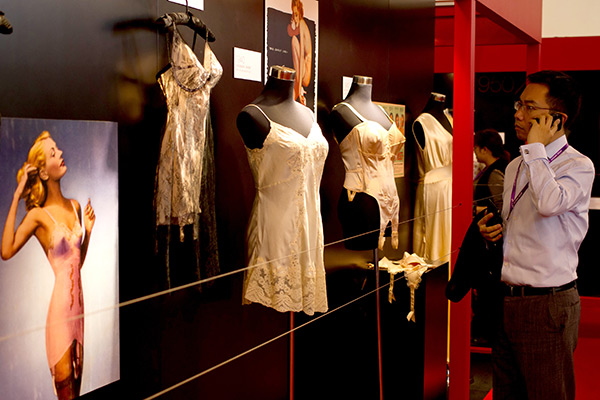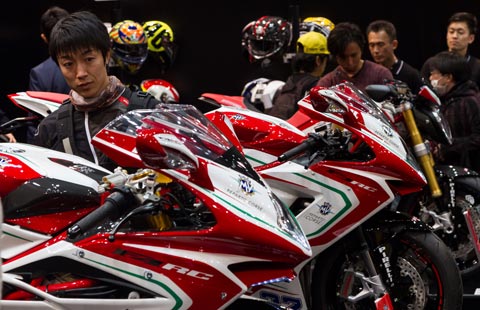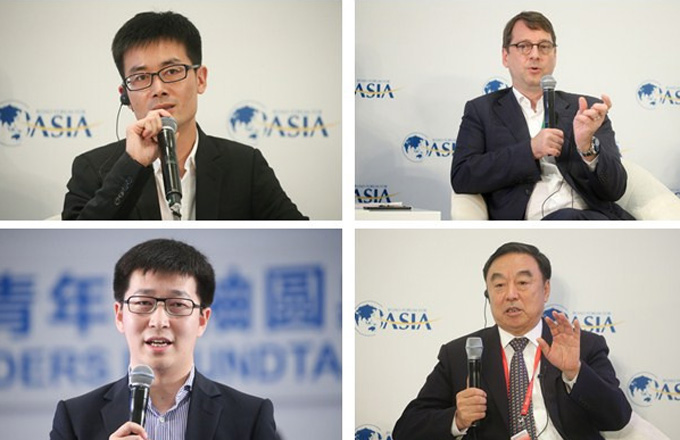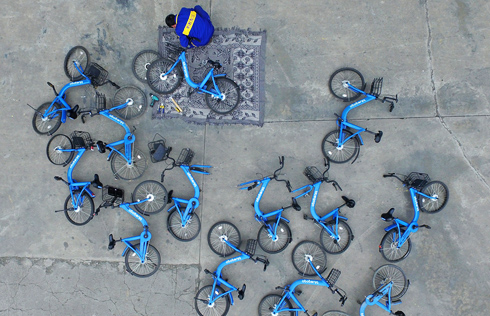Local lingerie brands seek to fill gaps in market, meet needs
 |
|
A professional buyer checks lingerie products on display at an international fashion and lingerie fair in Shanghai in 2014. [Photo/China Daily] |
When Victoria's Secret opened its Shanghai store recently, its model, Xi Mengyao, 28, a local, said she didn't really know where to buy inner wear until the famous US lingerie brand set up shop in her hometown. Her peers took Xi's confession with a pinch of salt though.
For several years now, millennials as well as older women in China have been shopping online for lingerie.
So much so that the domestic lingerie retailers' sales grew over 20 percent annually in recent years, the fastest among all women's apparel segments online, according to a report of China Business Network Data.
The report is based on responses from 407 million users of e-commerce giant Alibaba and the sales record of over 10 million retailers on its platforms Taobao and Tmall.
It found online platforms have become major underwear shopping destinations for those aged under 28.
Unlike the older generation, the millennials buy lingerie more as a fashion accessory than as functional apparel.
"The offerings at domestic stores are still very much 20th century. Fabrics offer support and coverage with little attention paid to design, while what is in demand is something that can match the jackets, bags and shoes from world's best-known fashion houses. There is a huge gap in between," said Xu Daini, founder and CEO of O2bra.com.
The 30-year-old Shanghai native is one of the handful of entrepreneurs in the country who have sought to fill that gap over the last three years.
They secured a solid customer base in the online world, which helps obviate high rental for physical stores. It is a big advantage to have when deep-pocketed foreign brands like Victoria's Secret are in the market. VS opened its first full assortment store in Shanghai earlier this month.
Xu did not launch her own brand or production line straight away. Instead, she started as an intermediary in 2014, connecting some of the world's most-sought-after lingerie brands with millions of Chinese women-and profiting from margins between wholesale and retail prices.
Business has been brisk since the beginning, despite the fact that the average price of offerings on O2bra is 50 to 100 percent higher than those in domestic stores. Typically, a piece of lingerie costs 300 yuan on O2bra. (The name is a play on O2, the chemical symbol of oxygen, and suggests that its products are as essential as the life-supporting gas.)
In 2016, backed by 2 million female users, O2bra's sales tripled year-on-year to 50 million yuan ($7.26 million). "When e-commerce took off, there used to be a notion that whatever is more expensive than 200 yuan wouldn't sell. But today, young people are not shopping online for cheap stuff but products that are not found in the physical stores or stuff that better reflects their personality," said Xu.
One of the bestsellers on O2bra is a crossover piece developed together with California-based funky lingerie startup Naja. The bra is plain black on the outside but has ancient Chinese erotic drawings on the inside.
"I think it best portrays the preferences of the millennials, especially those from big cities. They buy the best for themselves and are willing to pay big for that," said Xu.
Like Xu, Liu Xiaolu, a former strategic analyst, fills another gap in the industry-that of comfort.
She founded lingerie brand Neiwai, which offers the "polar opposite of Victoria's Secret". Neiwai clocked 30 million yuan in sales in 2016, with Liu's minimalist lingerie collections portraying nude, colored women selling well on Tmall.
"Essentially, the competition is not between online and offline channels, or between domestic and foreign brands. It's about matching the right needs," said Liu, who opened a by-reservation-only brick-and-mortar store in Shanghai for her brand earlier this year.
"The top ten lingerie brands (by retail value) now enjoy less than 15 percent of the market share, which leaves an ample 80 percent for every new player to pick up. The critical thing is to create a distinctive style and keep with it," Liu said.























